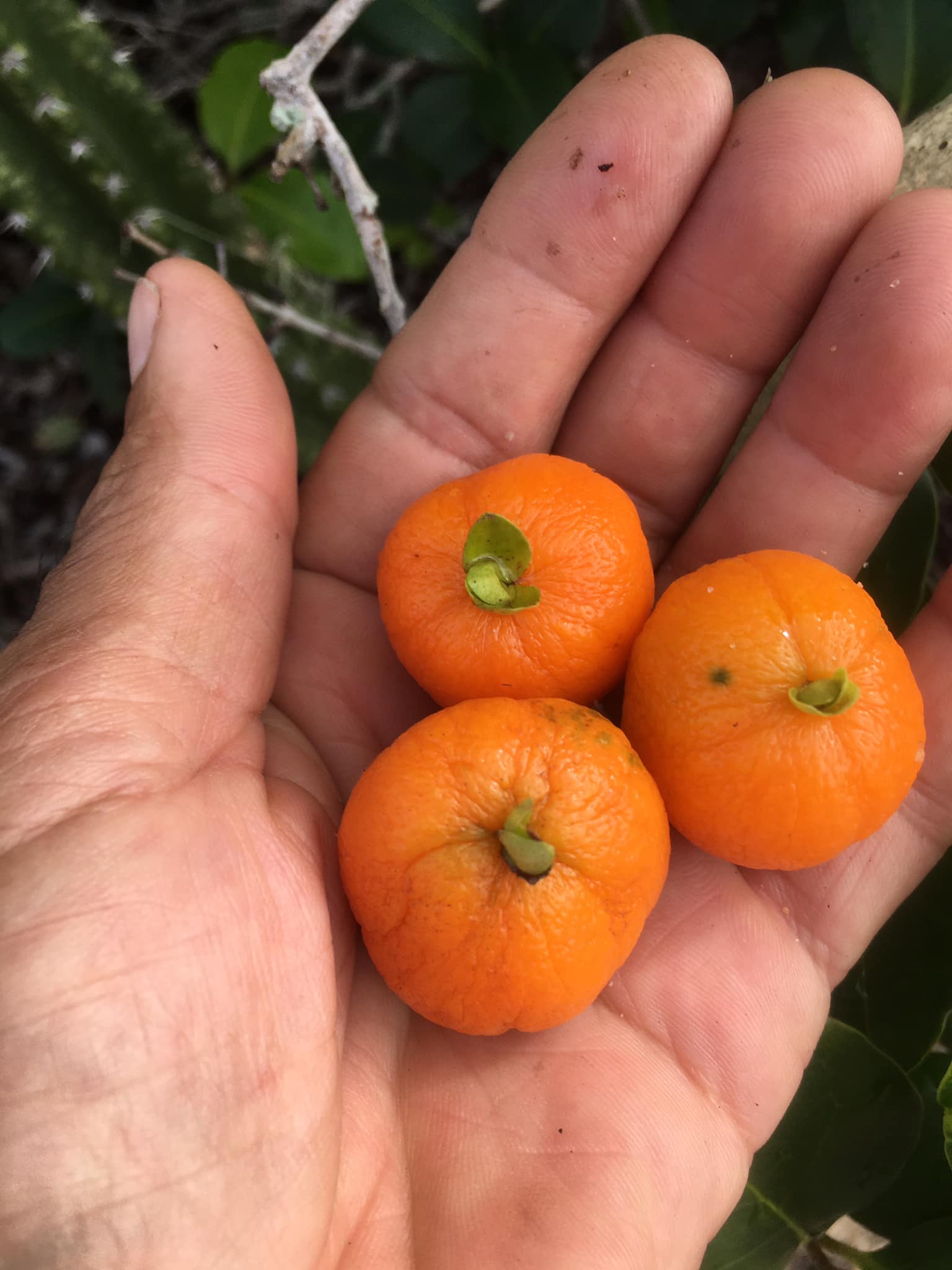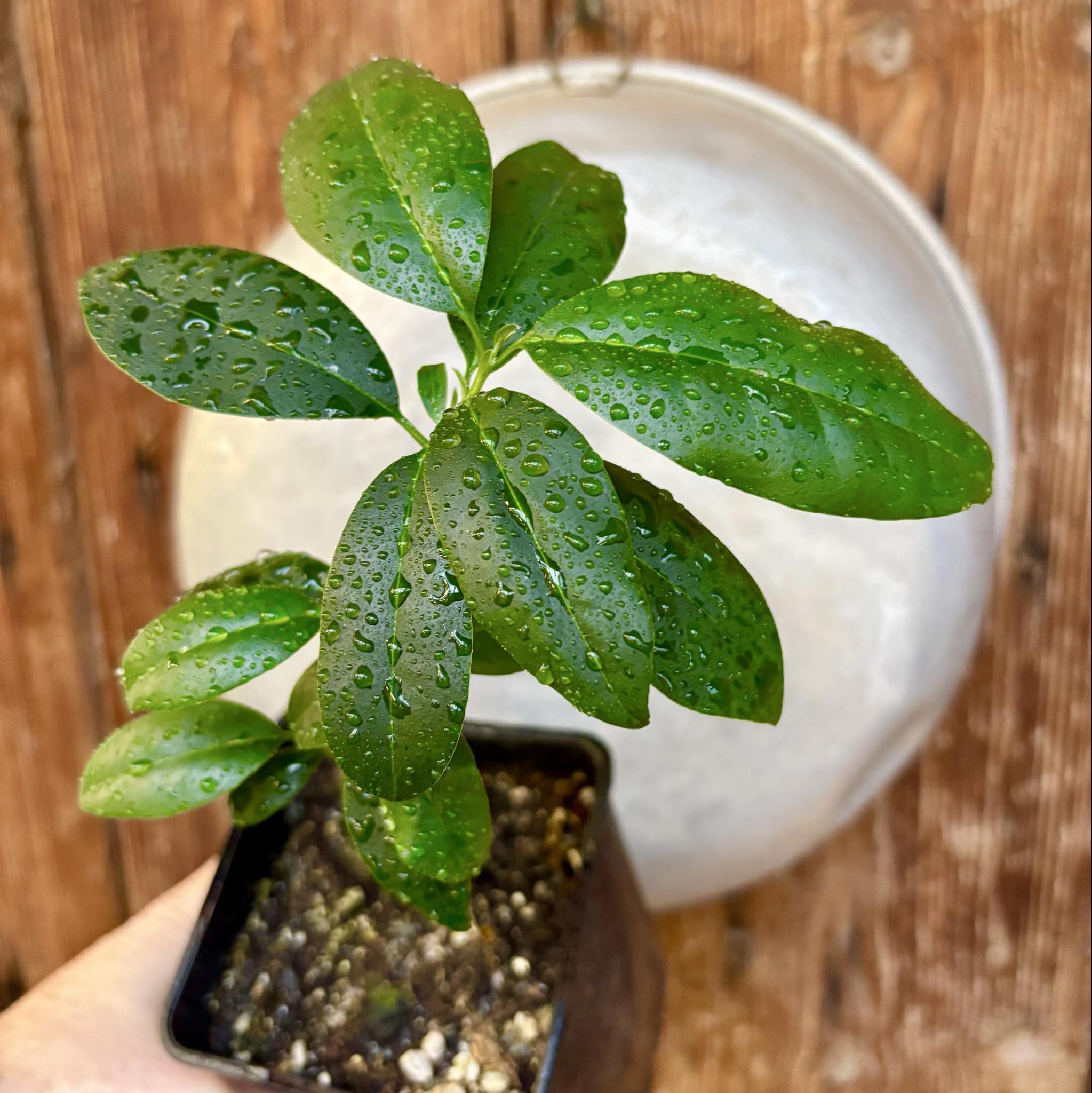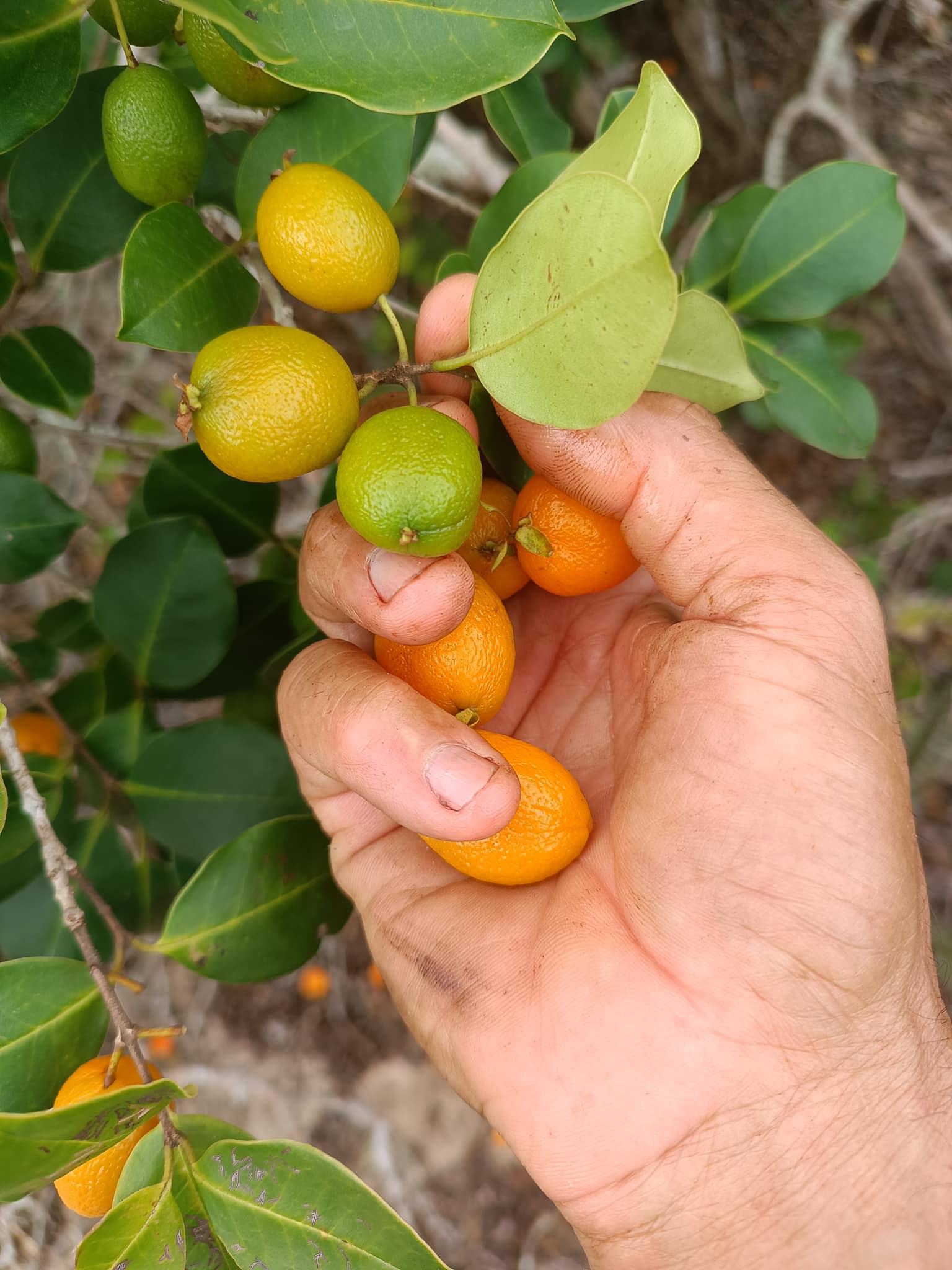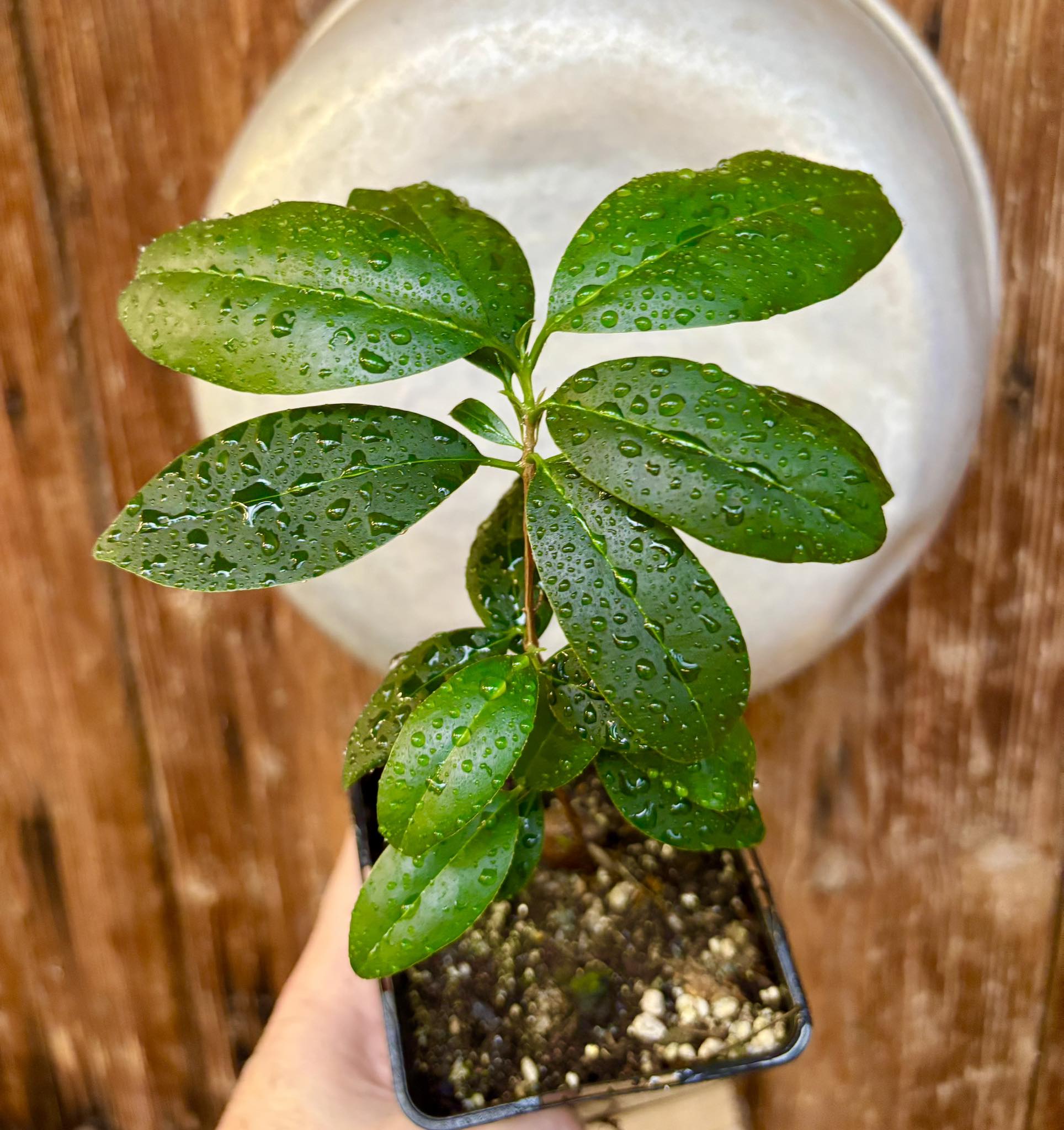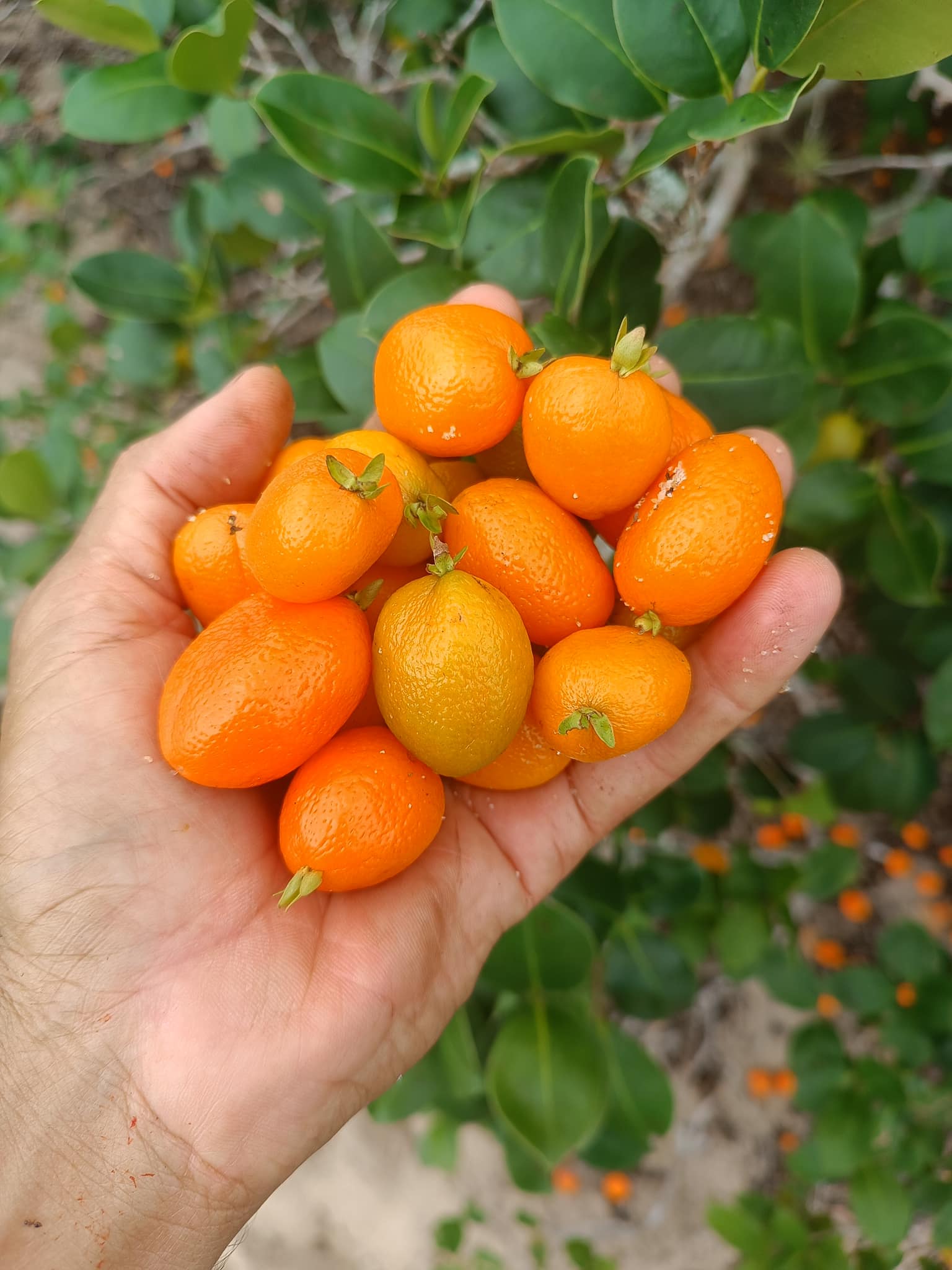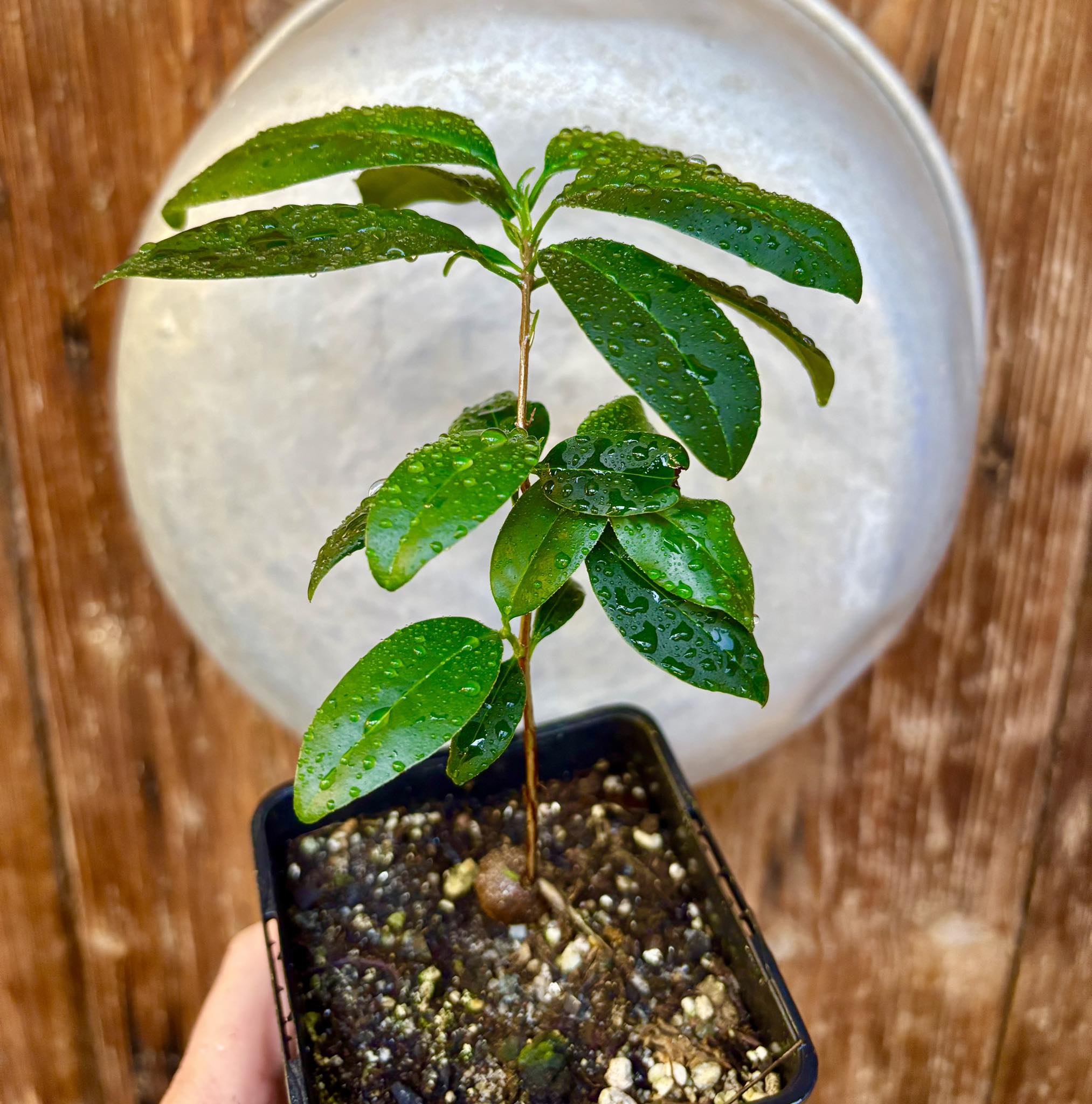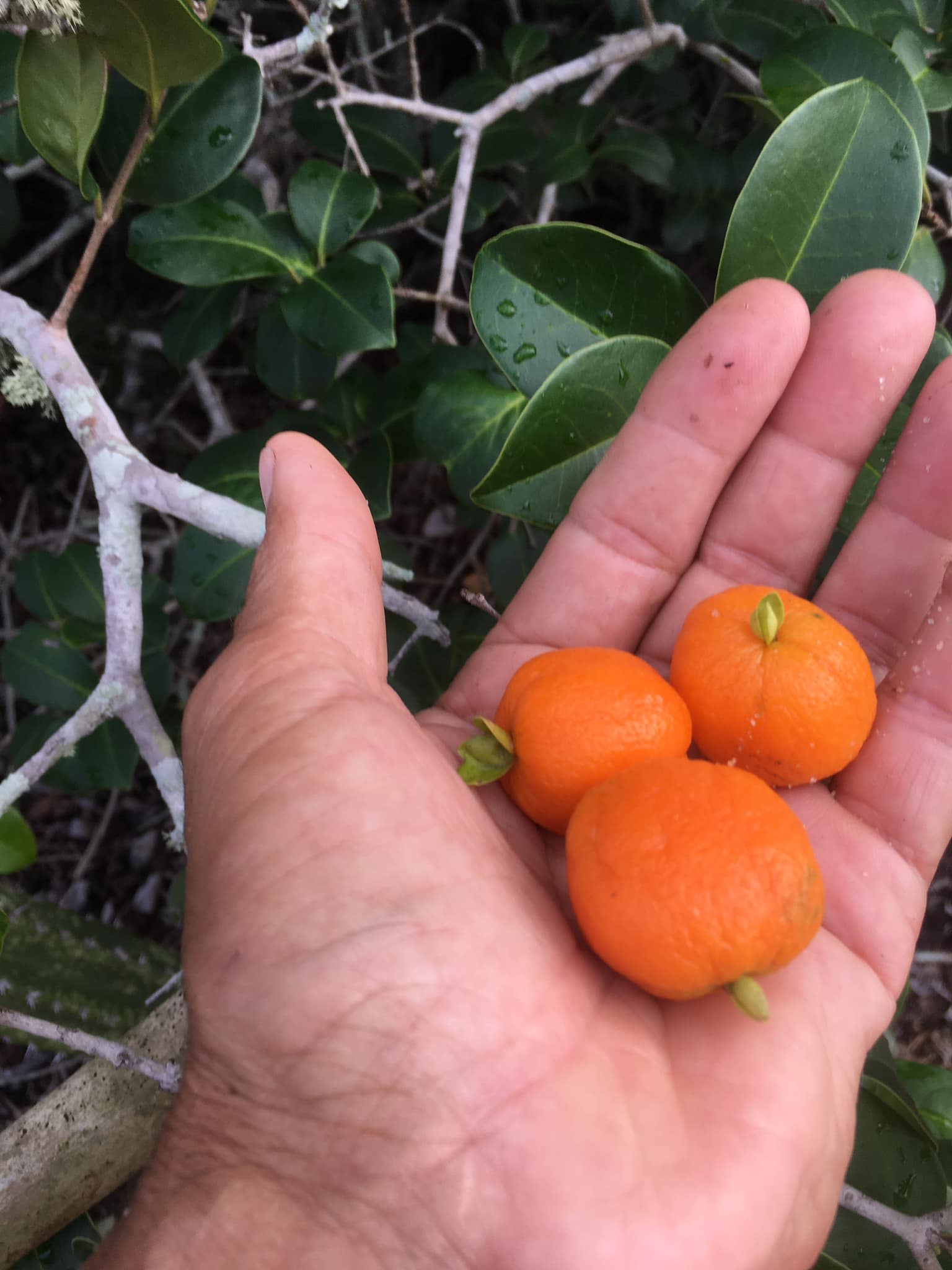Eugenia dichroma - Pitanga Fanta - 1 potted seedling / 1 getopfter Sämling
Eugenia dichroma - Pitanga Fanta
Family / Familie: Myrtaceae
origin from / Herkunft: South America / Südamerika
Climate / Klima: temperate to warm (10-25C / 50-77F) / gemäßigt bis warm (10-25C / 50-77F)
Taste / Geschmack: good taste / guter Geschmack
you buy / sie kaufen: 1 potted seedling / 1 getopfter Sämling
Delivery EU only
The Eugenia with the funny name.
It is called Pitanga Fanta because the juice made from it is very similar to this drink.
This Eugenia is endemic to the coastal Restinga forest biome. The most significant occurrence is in the state of Espírito Santo and north of Rio de Janeiro and can also occur in some areas of northeastern Brazil.
It is fast-growing and bears fruit after about 3 years in Brazil.
The fruits are elongated, with a thin peel surrounding a very tasty, orange liquid pulp.
However, the shell and the thin membrane surrounding the seed are slightly bitter. Therefore, only the pulp is eaten or made into juice.
You can get 2 liters of juice concentrate from 3 kg of fruit.
100ml of this juice concentrate is used for one liter of juice.
Please overwinter this plant at at least 10 degrees.
Die Eugenia mit dem lustigen Namen.
Man nennt sie Pitanga Fanta weil der aus ihr hergestellte Saft diesem Getränk sehr ähnelt.
Diese Eugenia ist endemisch im Restinga-Waldbiom an der Küste. Das bedeutendste Vorkommen liegt im Bundesstaat Espírito Santo und nördlich von Rio de Janeiro und kann auch in einigen Gebieten im Nordosten Brasiliens vorkommen.
Sie ist schnellwachsend und fruchtet in Brasilien bereits nach ca. 3 Jahren.
Die Früchte sind länglich, mit einer dünnen Schale, die ein sehr schmackhaftes, orangefarbenes flüssiges Fruchtfleisch umgibt.
Die Schale und die dünne Membrane um den Samen sind jedoch leicht bitter. Daher wird nur das Fruchtfleisch gegessen oder zu Saft verarbeitet.
Aus 3 kg Früchten kann man 2 Liter Saftkonzentrat gewinnen.
Von diesem Saftkonzentrat nutzt man 100ml für einen Liter Saft.
Bitte diese Pflanze bei mindestens 10 Grad überwintern.

